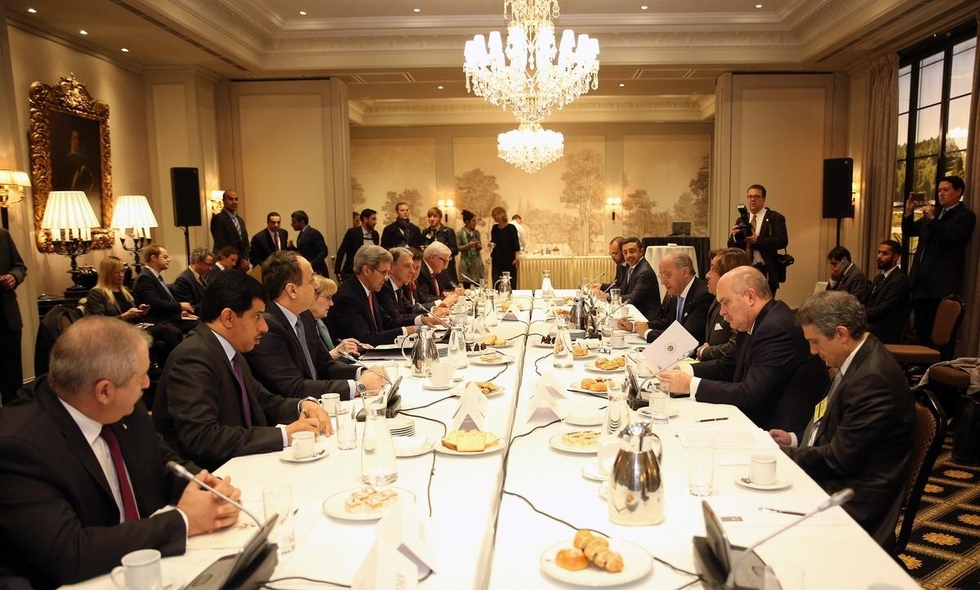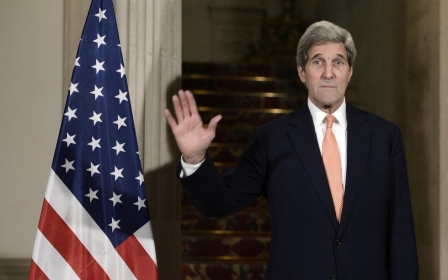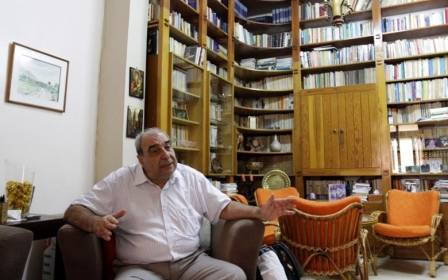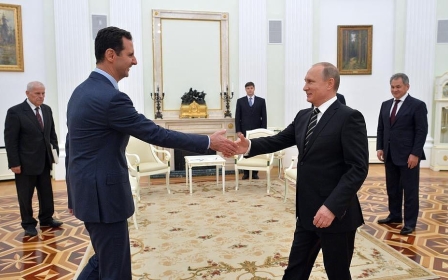Iran’s new Syria role as would-be peacemaker

By all accounts, the one-day international meeting on Syria held in Vienna on 30 October should be considered a definite plus for Iran’s regional diplomacy, reflecting Iran’s growing regional clout and its peacemaker role in Syria.
According to Iran’s Deputy Foreign Minister for African and Arabian Affairs, Hossein Amir-Abdollahian, despite the “wide gaps between the participants’ views,” Iran’s Foreign Minister Javad Zarif succeeded in ensuring that Iran’s views were considered in the nine-point joint statement issued at the end of the eight-hour meeting. The statement called for the preservation of Syria’s independence and territorial integrity, preservation of Syrian state institutions, humanitarian access, defeat of ISIS terrorists, a UN-brokered political dialogue between Damascus and the Syrian opposition with the goal of setting up inclusionary open elections, and the exploration of modalities for a ceasefire.
As expected, the thorny issue of the future of Syrian President Bashar al-Assad formed the Vienna meeting’s “blind knot” and the Iranian delegation has taken credit for preventing attempts (led by Saudi Arabia) to include a statement on Bashar al-Assad’s removal in the final communiqué.
Adamant that Iran and Russia should agree to a timetable for Assad’s removal, Saudi Arabia has seemingly drawn a “red line” that cannot possibly be respected by Tehran and Moscow as long as they are not fully guaranteed that a post-Assad regime will not deteriorate into another Libya scenario or cause a new realignment to the detriment of their vested interests.
A clue to the complexity of the Syrian theatre of conflict, coinciding with the Vienna talks, was a high-profile US announcement of deployment of special operations forces inside Syria, a move immediately denounced by Russia, which insists that the consent of the Syrian government is necessary otherwise it is a violation of Syrian sovereignty.
The US’s move may have been calculated to bolster its diplomatic clout at the table, in light of the 19-nation meeting’s decision to reconvene in two weeks, i.e., a clear sign of slow but steady diplomatic progress. Russia, the US, and Iran have now called for a ceasefire that is yet another sign of positive development, given the facility with which the Syrian theatre can almost overnight acquire the dimension of a “new cold war” rivalry between Moscow and Washington.
The fate of Syria is now mortgaged to the nuances of icy US-Russian relations, with the post-nuclear accord Iran suddenly possessing the potential to act as mediator between the two military superpowers that nowadays own the Syrian sky with their respective air campaigns.
From Iran’s vantage point, the challenge ahead is to forge a unity of purpose against ISIS while delineating the main contours of a viable political transition in Syria that might require Assad to step down.
In his recent London visit, Mr Abdollahian hinted at Iran’s willingness to “think the unthinkable,” namely Assad’s departure as part of a firm, mutually-agreed upon plan. At the same time, Iran insists on a Syrian-owned political process and seeks to refrain from giving the impression that it considers itself a direct stakeholder in a future Syrian national election.
But, diplomatic niceties aside, the geostrategic realities on the ground dictate the continuation of Iran’s pro-Damascus approach that has resulted in substantial financial, material, and military assistance to Syria by Iran since the onset of the bloody conflict four years ago, highlighted by the death of several high-ranking Iranian military commanders during the past few months. Clearly, the bloody conflict in Syria has been costly to Iran on all fronts and Tehran has an intrinsic interest in peace and stability in Syria, considered an important bridge to Lebanon and, indeed, the entire Arab world.
With Syria fragmented into several zones of influence and control by the government, rebels, and ISIS, an important prerequisite for Iran’s Syrian policy is to build bridges with the Syrian opposition, including the Free Syrian Army, which will likely be invited to the UN-proposed political reconciliation meeting above-mentioned.
In the past few years, Tehran has made a number of initiatives to reach out to the moderate Syrian opposition, which must now be extended further and deeper for the sake of confidence-building measures. At this point, it is unclear if the anti-Assad armed rebels, who constantly blame Iran and Russia for backing Assad, can come to the realisation that they need to open their own channels of dialogue with Tehran.
What is clear, however, is that with the new Iranian-Russian common cause in Syria, any hope of the demise of the Syrian regime harboured by the Saudi and Turkish-backed rebels has been effectively dashed for the foreseeable future, thus reinforcing Iran’s position that there is no military solution in Syria, only a political solution. To this end, Zarif has recently unveiled a four-step peace plan for Syria that focuses on political will, ceasefire, return of refugees, and a UN-led political transition. The UN Special Envoy on Syria, Staffan de Mistura, has welcomed Iran’s peacemaker initiative and, in fact, he was the first one to extend an invitation to Iran to attend the Syria talks in April.
Still, there is no illusion on Iran’s part that the complex Syrian conflict can be neatly resolved as a result of a couple of international gatherings. Rather, this is a huge task that requires serious, and sustained, diplomatic and political efforts in light of the regional and extra-regional dimensions of the Syrian conflict that requires, among other things, a steady improvement in Iran-Saudi relations. These two regional power houses have been engaged in proxy wars against each other and need to utilise the opportunity afforded by the Syrian talks to explore the options for a new thaw in their hostile relations. Short of the latter, the Syrian conflict is bound to remain deeply entangled by the implications of the inter-regional rivalries.
- Kaveh Afrasiabi, PhD, is a former political science professor at Tehran University and the author of several books on Iran’s foreign policy. His writings have appeared on several online and print publications, including UN Chronicle, New York Times, Der Tagesspiegel, Middle East Journal, Harvard International Review, and The Guardian among others.
The views expressed in this article belong to the author and do not necessarily reflect the editorial policy of Middle East Eye.
Image: Turkish Foreign Minister Feridun Sinirlioglu (R-2), French Foreign Minister Laurent Fabius (R-4), German Foreign Minister Frank-Walter Steinmeier (L-8) meet with foreign ministers for talks on Syria in Vienna, Austria on October 30, 2015. (AA)
New MEE newsletter: Jerusalem Dispatch
Sign up to get the latest insights and analysis on Israel-Palestine, alongside Turkey Unpacked and other MEE newsletters
Middle East Eye delivers independent and unrivalled coverage and analysis of the Middle East, North Africa and beyond. To learn more about republishing this content and the associated fees, please fill out this form. More about MEE can be found here.





